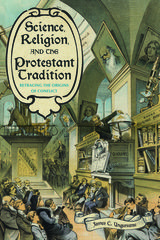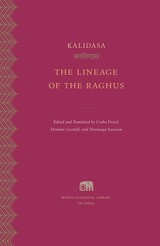
A new English translation of Raghuvaṃśa by the celebrated Sanskrit poet Kalidasa, who inspired such modern writers as Goethe and Tagore.
For a millennium and a half, Kalidasa’s works—from The Cloud Messenger to The Recognition of Shakuntala—have delighted audiences in India and beyond. Although the renowned poet and dramatist inspired many literary works over the centuries, little is known about his life. He likely lived in central India in the late fourth or early fifth century.
Kalidasa’s The Lineage of the Raghus, or Raghuvaṃśa, belongs to the Sanskrit literary tradition of mahākāvya, or court poem. It recounts the lives of ancient kings in the sūryavaṃśa, the Solar Dynasty who ruled from the capital city of Ayodhya. The poem describes, among other episodes, the quest for offspring by Dilipa, a descendant of the primordial king Manu; the world conquest of his son Raghu, which offers a panorama of the Indian subcontinent; the exploits of the famous Rama, an incarnation of Vishnu; and the debaucheries of Agnivarna, which jeopardize the future of the lineage.
This volume presents a new edition of the Sanskrit text in the Devanagari script alongside a fresh English translation of this enduring epic.
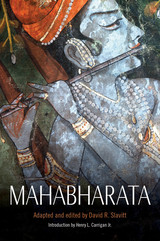
Within its 200,000 verse lines in Sanskrit the Mahabharata takes on many roles: epic poem, foundational text of Hinduism, and, more broadly, the engaging story of a dynastic struggle and the passing of an age when man and gods intermingled. David R. Slavitt’s sparkling new edition condenses the epic for the general reader.
At its core, the Mahabharata is the story of the rivalry between the Pandavas and the Kauravas, two related noble families who are struggling for control of a kingdom in ancient northern India. Slavitt’s readable, plot-driven, single-volume account describes an arc from the conception and birth of Bhishma to that hero's death, while also introducing the four goals of life at the center of Hinduism: dharma (righteousness, morality, duty), artha (purpose), kāma (pleasure), and moksa (spiritual liberation). The Mahabharata is engaging, thrilling, funny, charming, and finally awesome, with a range in timbre from the impish naivete of fairy tales to the solemnity of our greatest epics, and this single-volume edition is the best introduction available.
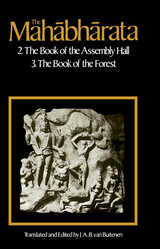
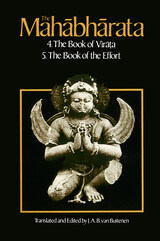
READERS
Browse our collection.
PUBLISHERS
See BiblioVault's publisher services.
STUDENT SERVICES
Files for college accessibility offices.
UChicago Accessibility Resources
home | accessibility | search | about | contact us
BiblioVault ® 2001 - 2024
The University of Chicago Press



